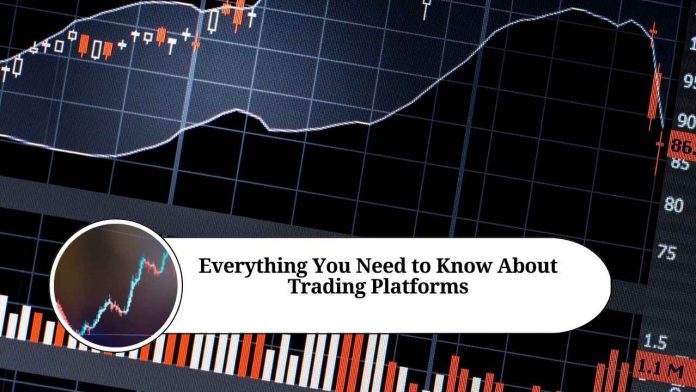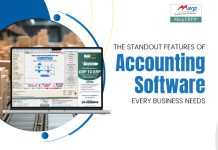Trading Platform: The Ultimate Guide
Trading platforms are digital tools that allow traders to buy and sell assets, such as stocks, currencies, or commodities. They are the gateway to the financial markets and provide access to trading opportunities around the clock. In this blog, we will take a closer look at trading platforms, how they work, and what features to consider when choosing the right one for your needs.
What is a trading platform?
A trading platform is a software application that connects traders to the financial markets. It enables traders to access real-time price quotes, charts, news, and other market data, as well as execute trades. Trading platforms can be provided by brokers, banks, or independent software vendors (ISVs).
Types of trading platforms
There are several types of trading platforms available, each with its own unique features and advantages.
- Web-based trading platforms: These are trading platforms that run on a web browser, such as Chrome or Firefox. They are convenient because they don’t require any software installation and can be accessed from anywhere with an internet connection.
- Desktop trading platforms: These are trading platforms that are installed on a computer. They offer more advanced features than web-based platforms, such as custom indicators and automated trading.
- Mobile trading platforms: These are trading platforms that run on mobile devices, such as smartphones or tablets. They allow traders to monitor the markets and execute trades on the go.
Key features of trading platforms
When choosing a trading platform, there are several features to consider:
- User interface: The user interface should be intuitive and easy to navigate. A cluttered or confusing interface can lead to costly mistakes.
- Market data: The trading platform should provide real-time market data, including price quotes, charts, and news.
- Order execution: The platform should allow for fast and reliable order execution. Delayed or failed order execution can result in missed trading opportunities or losses.
- Security: The platform should be secure and protect user data and transactions from hacking or theft.
- Customizability: The platform should allow for customization, such as the ability to create custom indicators or automate trading strategies.
Choosing the right trading platform
Choosing the right trading platform can make all the difference in your trading success. Here are some tips for selecting the right platform:
- Research different platforms: Take the time to research different trading platforms and compare their features and pricing.
- Consider your trading style: Your trading style will determine what features you need in a trading platform. If you are a day trader, for example, you may need a platform with advanced charting and order execution tools.
- Test the platform: Many trading platforms offer a demo account or trial period. Take advantage of this to test the platform and see if it meets your needs.
- Read reviews: Read reviews from other traders to get an idea of the platform’s strengths and weaknesses.
Types of assets available on trading platforms
Trading platforms offer access to a wide range of financial assets, including:
- Stocks: Trading platforms provide access to the stock market, allowing traders to buy and sell shares in companies.
- Forex: The foreign exchange market is the largest financial market in the world. Trading platforms offer access to this market, allowing traders to buy and sell currencies.
- Commodities: Trading platforms offer access to commodity markets, allowing traders to buy and sell assets such as gold, oil, and agricultural products.
- Cryptocurrencies: Cryptocurrencies such as Bitcoin and Ethereum have become increasingly popular in recent years. Trading platforms now offer access to these markets, allowing traders to buy and sell cryptocurrencies.
Benefits of using a trading platform
Using a trading platform can provide several benefits to traders, including:
- Access to real-time market data: Trading platforms provide real-time market data, allowing traders to make informed trading decisions based on the latest information.
- Faster and more reliable order execution: Trading platforms allow traders to execute trades quickly and efficiently, reducing the risk of missed trading opportunities or losses due to delayed or failed order execution.
- Customizability: Trading platforms can be customized to suit the trader’s individual needs and preferences, allowing for a more personalized trading experience.
- Access to global markets: Trading platforms offer access to global markets, allowing traders to take advantage of trading opportunities around the world.
Conclusion
Trading platforms are an essential tool for traders looking to access the financial markets. They offer access to a wide range of assets and provide real-time market data, fast and reliable order execution, and customizability. When choosing a trading platform, consider the features that are important to your trading style and do your research to find the platform that best meets your needs. With the right platform, you can trade with confidence and take advantage of trading opportunities as they arise.
Read more useful content:
Frequently Asked Questions (FAQs)
What is a trading platform?
A trading platform is a software application that connects traders to financial markets and allows them to buy and sell assets such as stocks, currencies, or commodities.
What are the different types of trading platforms?
There are web-based, desktop, and mobile trading platforms available, each with its own unique features and advantages.
What features should I look for in a trading platform?
When choosing a trading platform, consider features such as the user interface, market data, order execution, security, and customizability.
How do I choose the right trading platform for me?
Research different platforms, consider your trading style, test the platform, and read reviews from other traders to find the platform that best meets your needs.
What types of assets can I trade on a trading platform?
Trading platforms offer access to a wide range of financial assets, including stocks, forex, commodities, and cryptocurrencies.
Can I use a trading platform to automate my trading?
Many trading platforms offer automation tools such as custom indicators and automated trading strategies.
Is it safe to use a trading platform?
Trading platforms should be secure and protect user data and transactions from hacking or theft. It’s important to choose a reputable platform with a good track record of security.
Do I need a lot of money to use a trading platform?
Trading platforms typically require a minimum deposit to start trading, but the amount varies depending on the platform and the assets you want to trade.
How much does it cost to use a trading platform?
Trading platforms can have different pricing structures, such as commission-based or spread-based. Some platforms may offer free access to basic features, while others may charge a monthly subscription fee.
Can I use a trading platform on my mobile device?
Many trading platforms offer mobile apps that allow traders to monitor the markets and execute trades on the go.




















